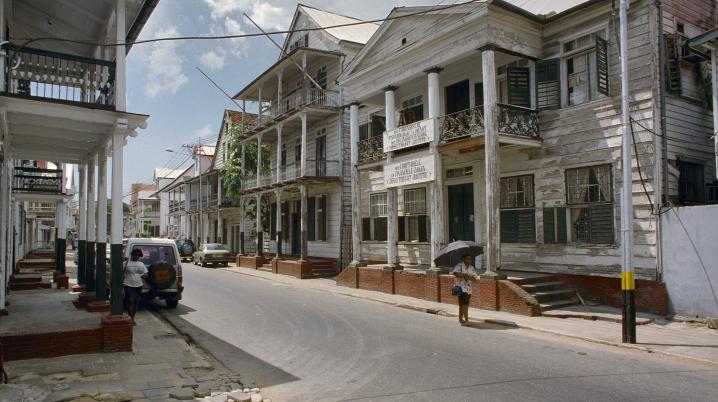
The Netherlands: Urban Heritage Strategies for World Heritage Cities
How do I revive the historic center of my city? How do I use the cultural heritage to achieve this goal? And vice versa, what new impulses can offer a future perspective to this valued heritage? These are some of the questions that many urban planners worldwide are struggling with. The same questions are central to the Urban Heritage Strategies (UHS) summer course, which was offered for the sixth time this year. The Cultural Heritage Agency of the Netherlands (RCE) organised it in close collaboration with Erasmus University Rotterdam and Delft University of Technology.
This last edition was focused on the four world heritage cities of Paramaribo (Suriname), Willemstad (Curaçao), Salvador da Bahia (Brazil) and Sawahlunto (Indonesia). 25 professionals from these 4 cities were selected to participate on the basis of their involvement in the urban development of these cities, and to contribute with their own cases. Due to the current situation surrounding the worldwide corona pandemic, the course started this year with an online section (part 1).
The main oucomes of Part 1
Part 1 of the course was mainly aimed at knowledge transfer. Nevertheless, this online section also included practical skills and network building. The goal was to develop a better understanding of the complex relationship between urban development and heritage management. The online course covered a range of topics (economic, social, environmental and morphology) and tools (management, planning and governance), and connected them to urban heritage management in World Heritage Cities. In this way, urban management tools were brought together with heritage conservation and vice versa. The potentials, challenges, and risks of the World Heritage Cities were also addressed. Each topic was moderated and supervised by different specialists on these subjects.
Part 2 will follow in 2021
The programme started on 3 August by Cees van Rooijen, advisor Focal Point World Heritage (RCE) on behalf of the Ministry of Education, Culture and Science of the Netherlands and it finished on 14 August by Arjen Uijterlinde, Ambassador for International Cultural Cooperation at the Dutch Ministry of Foreign Affairs. The follow-up will take place in the summer of 2021 in Rotterdam and will be "face-to-face". Central to Part 2 will be practical skills and network building. Participants will conclude the course with a strategic plan for the development of their own World Heritage City.
For more information on the course, you can check out this introduction video.

